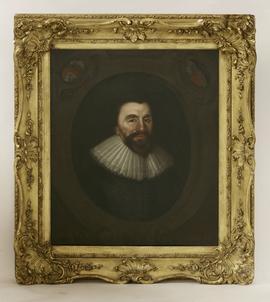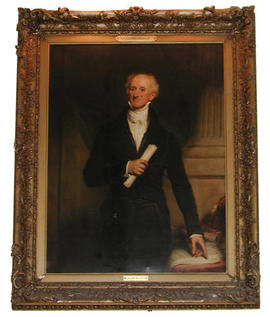COURTENAY, WILLIAM REGINALD, 11TH EARL OF DEVON, elder son of William Courtenay, 10th Earl of Devon (qv); b. 14 Apr 1807; adm. (G) 16 Sep 1818; Christ Church, Oxford, matr. 30 Mar 1824; President, Oxford Union 1827; 1st cl. Classics 1827; BA 1828; BCL 1831; DCL 1838; Fellow, All Souls Coll., 1828-30; adm. Lincoln’s Inn 22 Mar 1828, called to bar 27 Jan 1832; MP (Cons) South Devon 1841 - Feb 1849; a Poor Law Inspector 1849-50; Secretary, Poor Law Board 1850-9; succ. father as 11th Earl of Devon 19 Mar 1859; took Conservative whip in House of Lords; member, Public Schools Commission, 1862; Chancellor, Duchy of Lancaster, Jul 1866 - May 1867; Privy Councillor 10 Jul 1866; President, Poor Law Board, May 1867 - Dec 1868; known in Devon as “the good earl”; Chairman, Devon QS, for fifty-two years; DL JP Devon, JP co. Limerick; Busby Trustee 11 May 1861; member governing body, Westminster School, from 1869; edited with others vol. 6 of Cases decided in the House of Lords on appeal from the Courts of Scotland, 1832-3; m. 27 Dec 1830 Lady Elizabeth Fortescue, seventh dau. of Hugh Fortescue, 1st Earl Fortescue; d. 18 Nov 1888. DNB.
Taxonomy
Code
Scope note(s)
Source note(s)
- https://collections.westminster.org.uk/index.php/school

